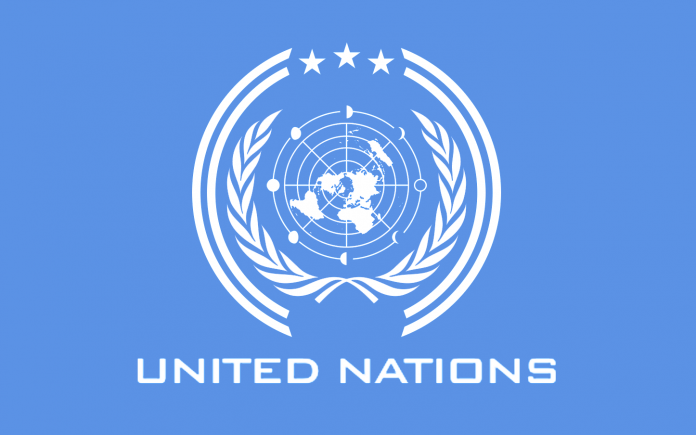The United Nations on Wednesday launched a $2 billion plan to fight coronavirus in the world’s poorest countries, saying nobody was safe if such nations were left exposed.
“This is the moment to step up for the vulnerable,” Secretary-General Antonio Guterres said while unveiling the Global Humanitarian Response Plan for COVID-19.
The virus – which began in China and spread fast through Europe – is now penetrating Africa, Asia and Latin America, hitting countries that already face humanitarian crisis because of conflict, natural disasters and climate change. Nations reeling from conflict, poverty and deficient health care will be unable to contain the coronavirus without significant international assistance, the UN chief said.
COVID-19 has killed more than 16,000 people worldwide and there are nearly 400,000 reported cases. It has a foothold across the globe and is now reaching countries that were already facing humanitarian crisis because of conflict, natural disasters and climate change.
The response plan will be implemented by UN agencies, with international NGOs and NGO consortia playing a direct role in the response.
The plan will:
— deliver essential laboratory equipment to test for the virus, and medical supplies to treat people;
— install handwashing stations in camps and settlements;
— launch public information campaigns on how to protect yourself and others from the virus; and
— establish airbridges and hubs across Africa, Asia and Latin America to move humanitarian workers and supplies to where they are needed most.
In his remarks, Secretary-General Guterres said, : COVID-19 is menacing the whole of humanity – and so the whole of humanity must fight back. Individual country responses are not going to be enough. “We must come to the aid of the ultra-vulnerable – millions upon millions of people who are least able to protect themselves. This is a matter of basic human solidarity. It is also crucial for combating the virus. This is the moment to step up for the vulnerable.”
Under-Secretary-General for Humanitarian Affairs Mark Lowcock said, “COVID-19 has already upended life in some of the world’s wealthiest countries. It is now reaching places where people live in warzones, cannot easily access clean water and soap, and have no hope of a hospital bed if they fall critically ill.
“To leave the world’s poorest and most vulnerable countries to their fate would be both cruel and unwise. If we leave coronavirus to spread freely in these places, we would be placing millions at high risk, whole regions will be tipped into chaos and the virus will have the opportunity to circle back around the globe,” he said.
“Countries battling the pandemic at home are rightly prioritising people living in their own communities. But the hard truth is they will be failing to protect their own people if they do not act now to help the poorest countries protect themselves.
“Our priority is to help these countries prepare and continue helping the millions who rely on humanitarian assistance from the UN to survive. Properly funded, our global response effort will equip humanitarian organisations with the tools to fight the virus, save lives and help contain the spread of COVID-19 worldwide,” Lowcock added.
WHO Director-General Dr. Tedros Adhanom Ghebreyesus said, “The virus is now spreading in countries with weak health systems, including some which are already facing humanitarian crises. These countries need our support – out of solidarity but also to protect us all and help suppress this pandemic. “At the same time,”, he said, “we must not fight the pandemic at the expense of the other humanitarian health emergencies.”
UNICEF Executive Director Henrietta Fore said, “Children are the hidden victims of the COVID-19 pandemic. Lockdowns and school closures are affecting their education, mental health and access to basic health services.
“The risks of exploitation and abuse are higher than ever, for boys and girls alike. For children on the move or living through conflicts, the consequences will be unlike any we have ever seen. We must not let them down.”
At the virtual launch of the COVID-19 Global Humanitarian Response Plan, the UN Secretary-General was joined via video link by Lowcock, Dr Tedros and Ms. Fore.
Together they called on UN Member States to commit to stemming the impact of COVID-19 in vulnerable countries and containing the virus globally by giving the strongest possible support to the plan, while also sustaining core support to existing humanitarian appeals that help the more than 100 million people who already rely on humanitarian assistance from the UN just to survive.
Member States were warned that any diversion of funding from existing humanitarian operations would create an environment in which cholera, measles and meningitis can thrive, in which even more children become malnourished, and in which extremists can take control – an environment that would be the perfect breeding ground for the coronavirus.
To kick-start the response plan, Lowcock, the UN humanitarian chief, released an additional $60 million from the UN’s Central Emergency Response Fund (CERF). This brings CERF’s support to humanitarian action in response to the
COVID-19 pandemic to $75 million. In addition, country-based pooled funds have allocated more than $3 million so far.
This new CERF allocation – one of the largest ever made – will support: WFP to ensure the continuity of supply chains and transport of aid workers and relief goods; WHO to contain the spread of the pandemic; and other agencies to provide humanitarian assistance and protection to those most affected by the pandemic, including women and girls, refugees and internally displaced people. Support will include efforts around food security, physical and mental health, water and sanitation, nutrition and protection.




